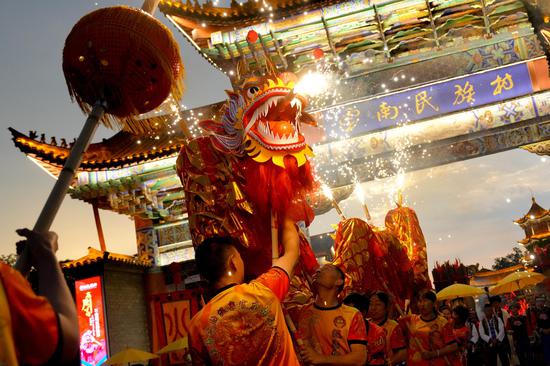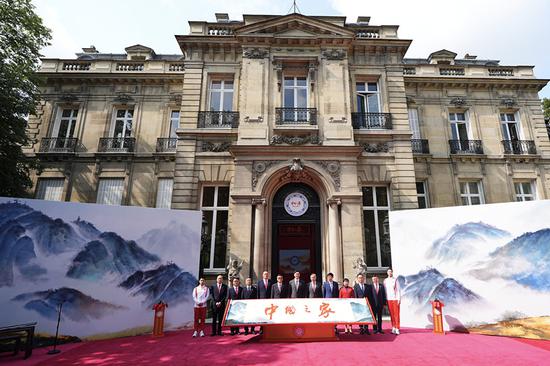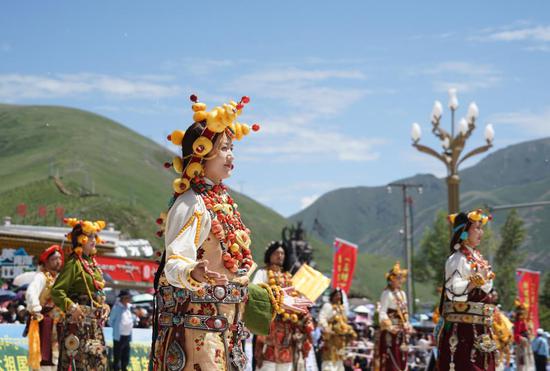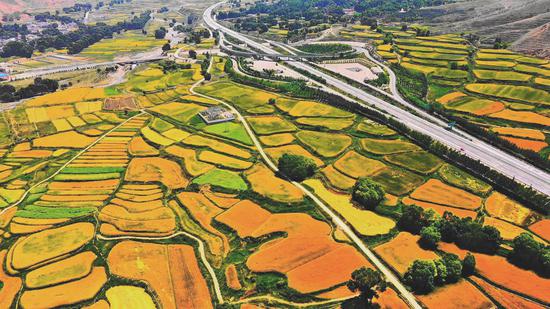
A team competes at the Basum Tso International Rafting Open in Konpo Gyada county in April. (Photo provided to China Daily)
Touching the sky
Businesswoman Wang Xueyi, 28, from Shenzhen, Guangdong province, joined an organized three-day hiking trip near Mount Kulha last week. She said it had been a long-term dream of hers to experience the wild beauty of Xizang firsthand.
"The landscape in Xizang is very beautiful, with endless blue skies, white clouds, colorful prayer flags, sacred snow-capped mountains, and jade-like lakes," said Wang.
"In people's minds, Xizang is far away and hard to reach, but many people desire to go there," Wang said.
She was also impressed by the cultural and religious aspects of the region.
"The clouds seem within reach," she said. "The rocks are perilous and towering, the snow-capped mountains are pure, white and sacred. Although the altitude can be challenging, I felt very happy experiencing the vastness and magnificence of Xizang," she said, adding she plans to return to Xizang after her positive experience.
Guide Ngakwang Dorje said Tibetans respect and worship the high mountains as they are considered sacred and must be protected. While providing outdoor services generates an income for locals, sharing an understanding of their significance with visitors is equally important, he said.
Instead of "conquering" a sacred mountain, a Tibetan would walk around it in a clockwise direction as a religious observance to ask for protection from the mountain gods, Ngakwang Dorje said.
"Climbers from the West and people from other parts of China have a desire to conquer the mountains by reaching the top, this is very different from our belief," he said.
"For us, all the climbing and all the work we have been doing is all a job."

















































 京公网安备 11010202009201号
京公网安备 11010202009201号